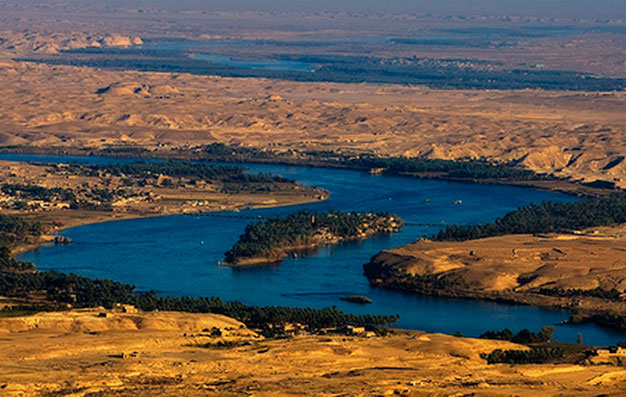By Venkata Vemuri
BAGHDAD — There’s something more precious to Iraq than oil. It’s water. Facing a drought for the fourth straight year, Iraq is at its wit’s end trying to fulfill the basic water needs of its people as it struggles to wind-down its long, American-backed war. The country’s main sources of water are the Tigris and the Euphrates Rivers, both largely controlled by Turkey at its northern frontier.
Iraq says Turkey is not letting enough water flow downstream for its people and crops. It is furious and the tension between Iraq and Turkey, partners in so many other areas, has leaders in neighboring countries on the edge of their seats. War could break out. The oil business could be disrupted.
Water experts and diplomats have been worrying about just this kind of thing. Officials at the United Nations say that several hundred shared rivers around the world are potential flash points. For years, world leaders have been saying that a dispute over water could ignite a shooting war. Lately, United Nations officials have been arguing that violence is unlikely because, over the years, thousands of water disputes have been resolved, well before any shooting has started. Sceptics say, however, that one jumbo, implacable dispute could create the crucial spark.
Iraq is not only engulfed in war, but is battling on three other fronts – handling its water crisis, rejuvenating its economy and oil exports after six years of instability, and resolving its long-running dispute with the autonomous Kurdish region in northern Iraq. Turkey is helping with the reconstruction of Iraq and is directly or indirectly involved in the other issues. Iraq has some leverage with Turkey because Turkey wants Iraq’s help in stopping attacks along its border with Iraq by fighters from the Kurdish Workers Party or PKK.
For the neighbours of Turkey and Iraq the immediate concern is that differences over water could disrupt the flow of oil, the source of the region’s wealth. In the absence of a water-sharing agreement, Turkey and Iraq have often butted heads over river waters. There were problems again this year, until Turkey increased the flow of water.
But Iraq is still far from happy. Latif Rashid, Iraq’s Minister of Water, said this summer that “despite promises made by Turkish officials to provide more water to Iraq,” Turkey had not delivered. “In fact,” Mr. Rashid said, the flow from Turkey lately has been “half the minimum that normally arrives in our country.”
The Iraqi Water Minister claimed that Turkey increased the flow of the Euphrates to only a fraction of what it had promised and had provided only about a quarter of Iraq’s minimum requirement for irrigation.
Turkish Foreign Minister Ahmet Davutoglu says his country has fulfilled its pledge and is considering a further rise. The Euphrates water passes through Syria before reaching Iraq. Under a treaty between Turkey and Syria, Syria permits 58 percent of the water to continue on to Iraq. A little less than half of the Tigris water that enters Iraq comes from Turkey. The rest comes from tributaries in Iran.
Turkey says, somewhat infuriatingly from the Iraqi point of view, that giving Iraq more water could be a waste. It says that Iraq has no formal policies on water use and conservation. In fact a United Nations unit, the Food and Agriculture Organization, is currently working with Iraq on a national water plan.
Iraq has long claimed that Turkey treated the waters of the Tigris and Euphrates as national Turkish assets. More than half of Iraq’s water for farming and all of its drinking water needs are met by the two rivers. And in the last few years, Iraq’s water crisis has become colossal.
Turkey acknowledges some reduction in the flow of river water as a result of its monumental, $32 billion project for irrigation and power generation, started in the 1980s. The project is known by its Turkish acronym GAP. It is sending water for irrigation to nine of its poorest provinces. In the project, Turkey also envisages building 22 river dams and huge reservoirs, with 19 hydroelectric power plants by 2013.
Turkey launched the irrigation and power project despite cautions from the World Bank, apprehensions of earth quakes, protests by archaeologists who fear inundation of heritage sites of the Mesopotamian period and cries of foul by Iraq – as it watched it water supply dwindle.
The long-term outlook is somewhat shaky. Turkey says it is determined to complete the GAP project which will prevent substantial increases in river flows to Iraq and potentially keep the pot boiling.
But Turkey is also trying to mend fences. Ahmed Davutoglu, the foreign minister of Turkey, visited Baghdad in late summer and said that the recent boost in Euphrates water for Iraq was intended as “a genuine and sincere desire to solve the water crisis.” Mr. Davutoglu said there was an evident “need for reframing our relations.”
Climate Change: The Anatomy of A Silent Crisis
ATLANTA —CNN calls it the first comprehensive report on the human cost of climate change. The report, Human Impact Report: Climate Change—The Anatomy of a Silent Crisis, has been brought out by the Global Humanitarian Forum, the think tank of Kofi A. Annan, a former United Nations secretary general. The report comes as a curtain raiser for the United Nations Climate Conference in Copenhagen toward the end of 2009. The objective of the conference is to forge a new agreement on climate change that would go into effect in 2012.
Among its multitude of environmental issues, the report lays special emphasis on water. “Shortages in future are likely to threaten food production, reduce sanitation, hinder economic development and damage ecosystems,” it says. Climate Change is causing more violent swings in the weather. There are more floods and more droughts. By 2030, the report says, hundreds of millions of people will be confronted with problems related to water. #

